On a quiet road in Scranton, Pennsylvania where the homes are all nearly identical, lives a family of Syrian refugees. They arrived in 2016 during a polarizing time in American politics, escaping political persecution at home.
The Alhafyan family is one of several Syrian refugee families living in the Scranton/Wilkes-Barre area. Heba, 18, and Abdul Raouf, 26, live with their parents in a modest two-story home. They came here hoping to find peace, safety, and running water.
Trump’s attitude towards immigrants from Muslim countries has garnered nationwide attention and concern for the community both in and outside of the U.S. but the Alhafyan family says it has not been affected.
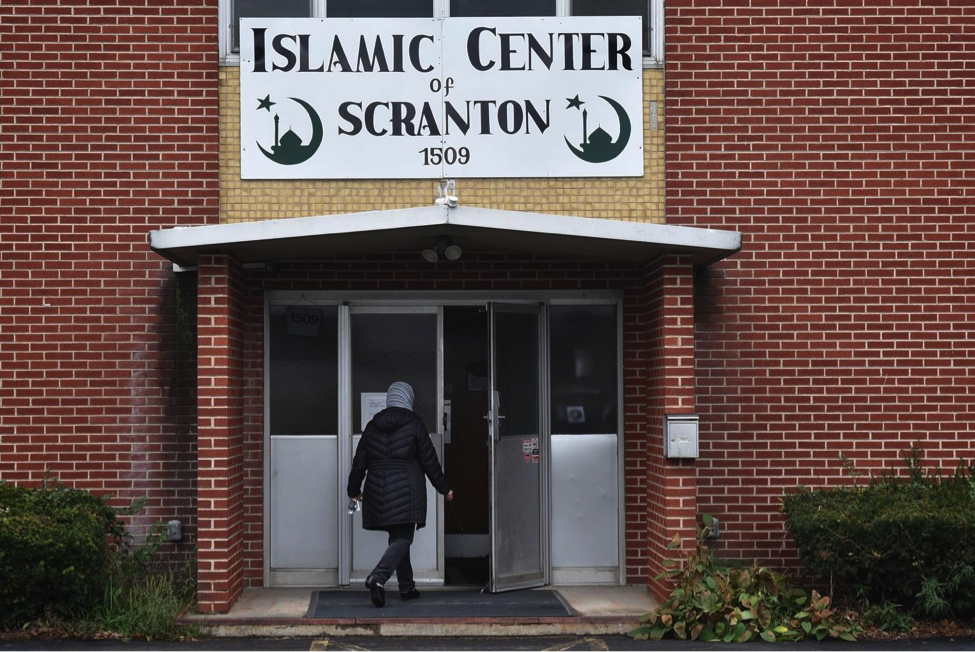
Immigration is a key issue for this year’s midterm elections – since July, it has been the second most searched term on Google, and it remains a critical factor in the election of local and national leaders this season. In Scranton, the conversation among the Muslim community has boiled down to priorities – a basic standard of living or the end of hate speech.
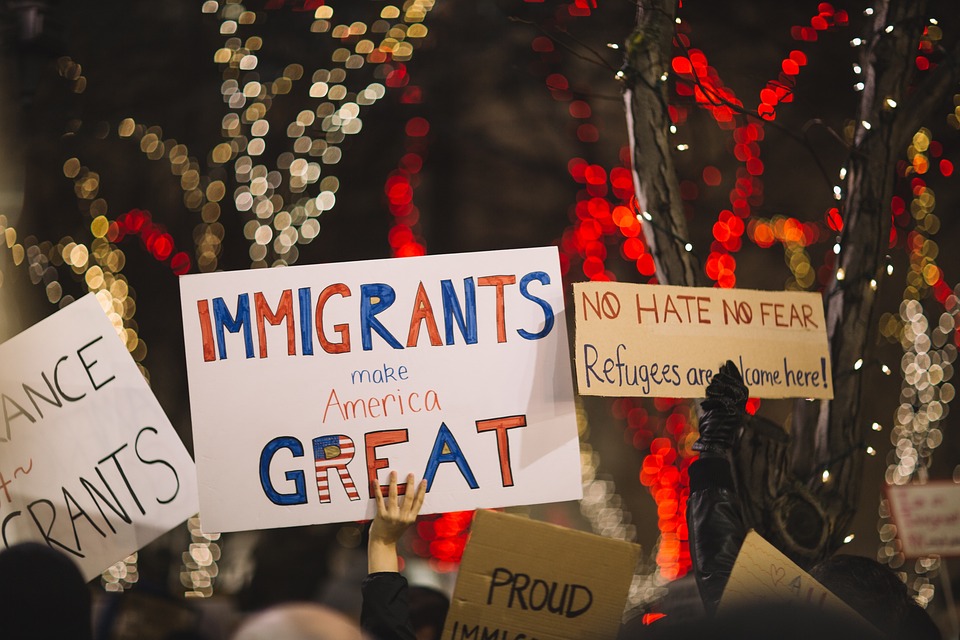
On a recent Friday afternoon, the family welcomed a stranger into their home for hours of tea, nibbles and discussion about politics in their adopted home country. The Alfahyan home, decorated with tapestries of Arabic script, is modestly furnished, with gold-threaded pillows on brown couches, the scent of allspice cooking wafts in the air.
Abdul Raouf was the first of his family to come to the United States 2016, and was placed by in an apartment that he shared with two other refugees from Africa. “I was very scared of them at first,” said Abdul. “We don’t have a lot of Africans in Syria.”
“But they told me they were scared of me, too,” he added, laughing.
His sister and parents joined him a month later, when a home was available for the family. “They gave us an address and told us to come here,” said Abdul. “We did not choose where to go.”
Scranton, a once bustling coal mining town, has experienced a significant decline in its population, with currently about half the number of residents it had 70 years ago. However, Pennsylvania has become one of the top ten states for refugee resettlements. According to the Refugee Processing Center, Pennsylvania took in 1,489 refugees in 2017, with Syrians being the third most represented among them.
In 2015, the University of Scranton launched a program called In Solidarity with Syria, which used education and advocacy to support the refugee crisis and help settle refugees in Scranton. In 2017, it was renamed The Refugee Solidarity Initiative.
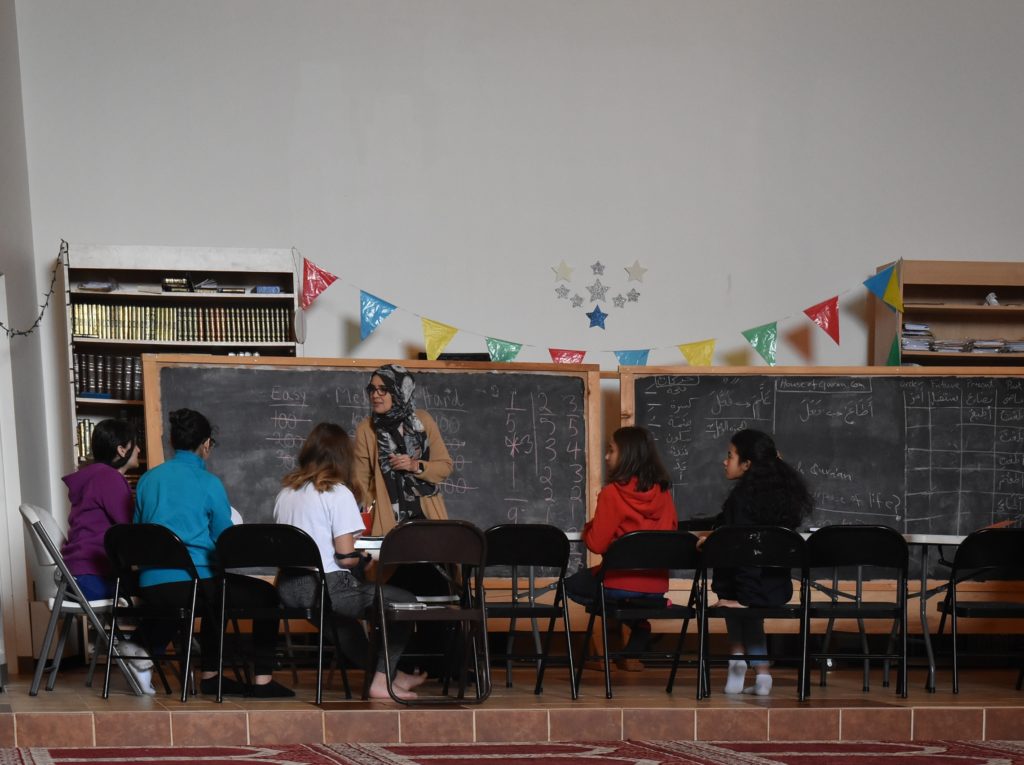
Over sweetened black tea in crystal tea cups served by Abdul’s mother, Salwa, 51, the family said that it felt welcome in Scranton. They have not felt discriminated against in any way, despite the heated political climate.
“My family likes America, we like how the government works with us to help us,” said Abdul who was recently enrolled in Medicaid. His parents both received critical heart surgeries in Scranton, which limited their ability to work.
“The only thing is that I want my sister to come,” said Abdul, referring to his eldest sister whose husband went missing in Syria several years ago. She has three children and lives in Jordan but is unable to secure a visa to join her family in Scranton.
“[Trump] is the reason she can’t come,” said Salma Ahmed, 21, referring to the Trump Administration travel ban, which suspended the entry of Syrian refugees. In 2016, 15,479 Syrian refugees were resettled in the US – in 2018, 29 were admitted.
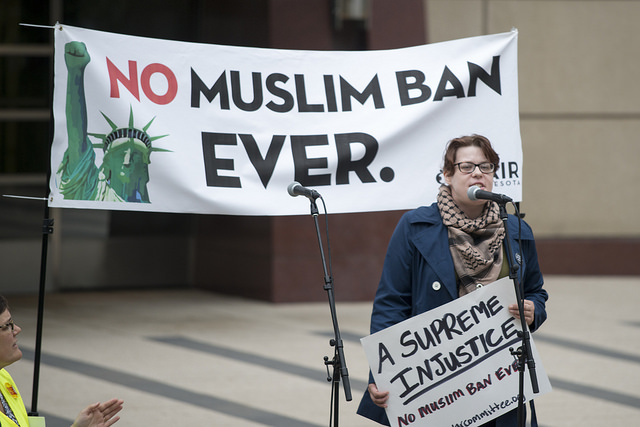
Catherine Burke-Shahin, 47, a Muslim-American convert with a Roman Catholic background, recently moved to Scranton with her husband. After services at the local mosque, she introduced herself to the Alhafyan family at their home, eager to get to know the local Muslim community, and was invited to join the discussion. Her experiences were in stark contrast to the Alhafyan family’s.
Catherine has had difficulty asking her family in Massachusetts to accept her new faith. “It’s the hijab they don’t like.”
Ahmed said she was bullied in her Scranton high school, before Trump was elected, for wearing a hijab.
“They told me to take the ‘towel’ off my head,” said Ahmed. She removed it for a while, but decided to continue wearing it soon after. “I want people to know I am Muslim,” she said as she tucked a wisp of hair back into her headscarf, while Burke-Shahin nodded.
Abdul said that the fighting in his home country simply must end so the family could go back to Syria, their deepest wish.
However, he said, it would not be in American interests to have Bashar al-Assad removed or killed, and so it would never happen.
“It’s good that [Trump] is fighting in Syria because he is stopping Bashar al-Assad,” said Abdul. “But I don’t like that he is fighting with my country. Would you like it if someone came and broke your home?”
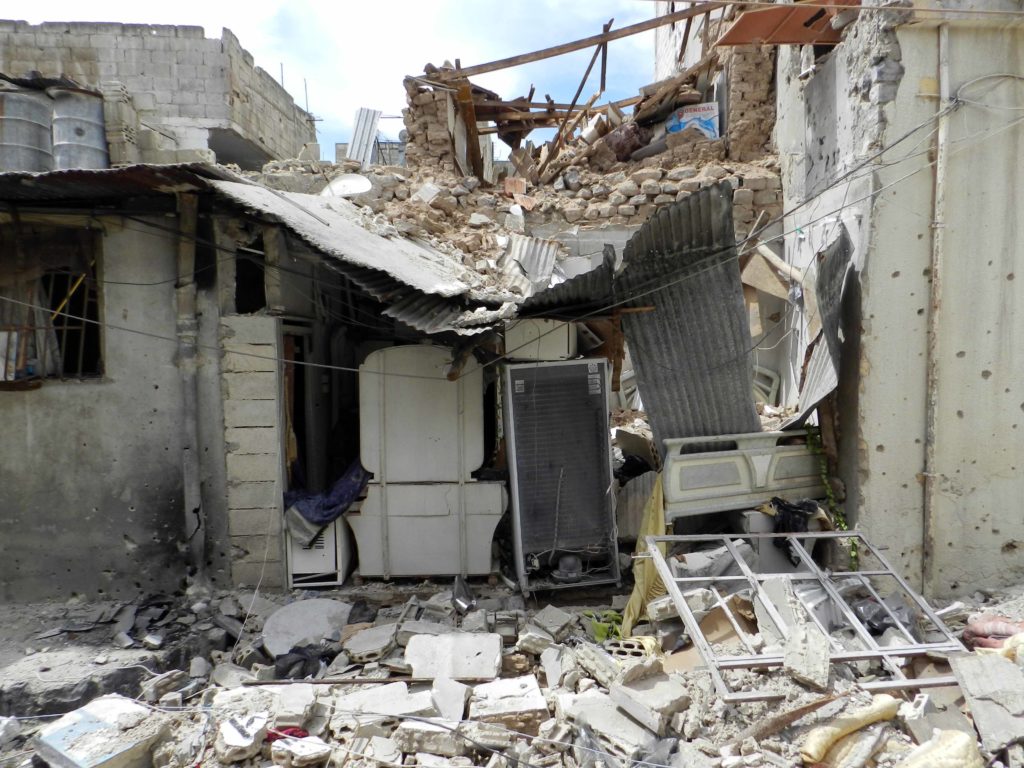
The Alhafyan family is one of thousands living in the United States with no guarantee of returning home, with family members missing, with their past far behind them hidden beneath the rubble of civil war. America is a safe haven, and survival is key.
Email the Author, Natalie Sachemechi at nls349@nyu.edu